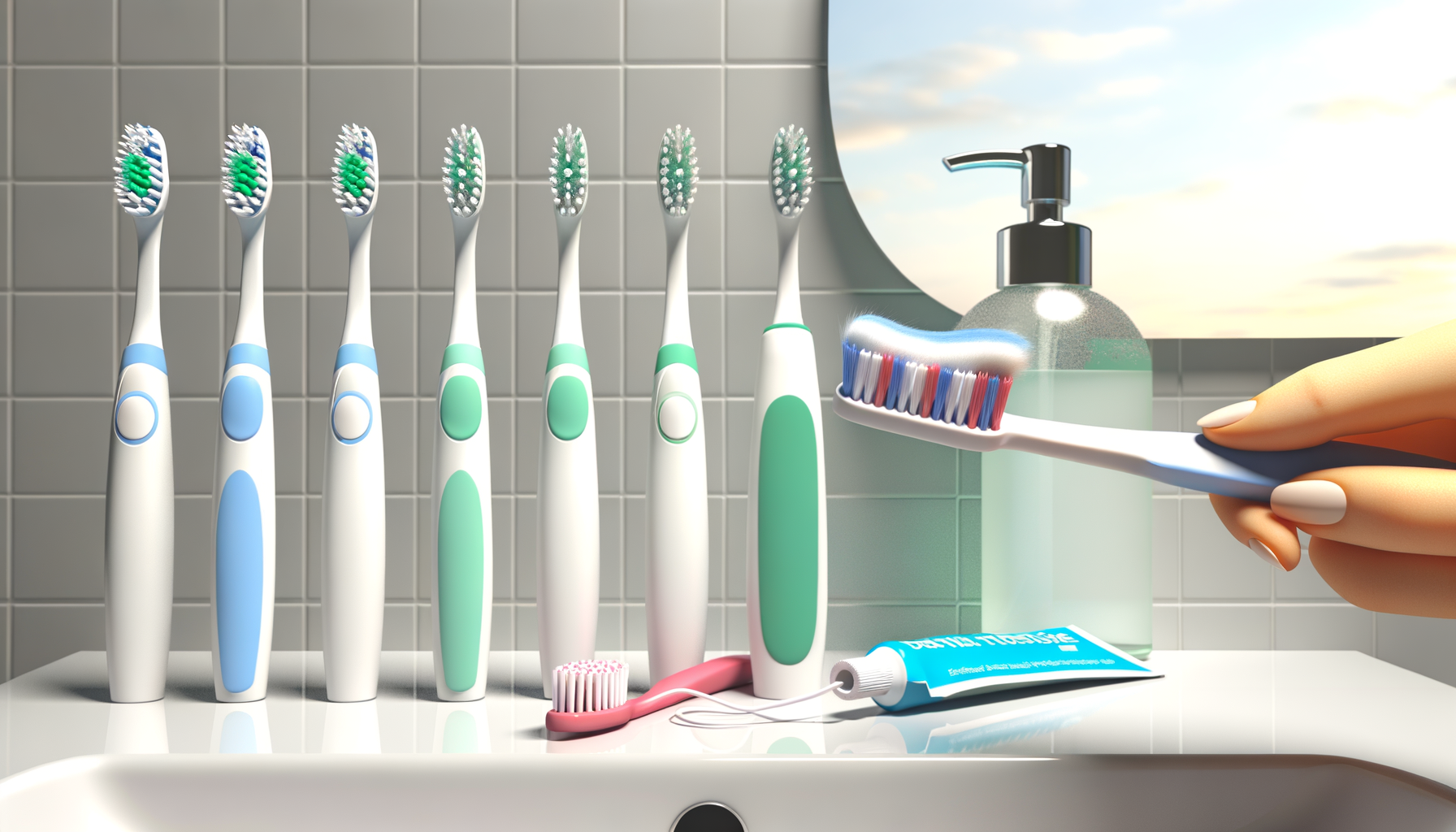Preventing Gum Disease: Early Signs, Symptoms, and Proactive Care
Apr 07, 2024
Maintaining healthy gums is crucial for overall dental health. Gum disease, also known as periodontal disease, can lead to serious issues if not addressed early on. It often starts without any discomfort, making it difficult to detect without proper dental knowledge. Recognizing the early signs and symptoms is essential for taking proactive steps toward prevention. Regular dental check-ups, good oral hygiene, and a balanced diet play key roles in preventing gum disease and ensuring a healthy and happy smile.
Understanding Gum Disease: An Overview
Gum disease, widely recognized in the dental field as periodontal disease, is an inflammation of the gum tissue that can progress to affect the bone that surrounds and supports your teeth. This prevalent condition ranges in severity from simple gum inflammation, known as gingivitis, to a more severe form, periodontitis, which can result in significant damage to the soft tissue and bone that support the teeth. Understanding gum disease, its progression, and its causes is the first step toward prevention and maintaining a healthy mouth.
The Stages of Gum Disease: Gingivitis to Periodontitis
Gum disease develops in stages. The initial phase is gingivitis, characterized by red, swollen gums that may bleed during brushing. Gingivitis is commonly caused by inadequate oral hygiene that allows plaque—a sticky film of bacteria—to build up on the teeth and harden. In many cases, gingivitis can be reversed with daily brushing and flossing, paired with regular dental cleanings. Without treatment, gingivitis can advance to periodontitis. In this more severe form, the inner layer of the gum and bone pull away from the teeth to form pockets, which subsequently become infected. As the condition progresses, the pockets deepen, resulting in further bone and tissue loss, and ultimately, tooth loss.
Common Causes and Risk Factors
The primary cause of gum disease is plaque buildup, but several other factors can play a role in its development and progression. Smoking is one of the most significant risk factors associated with gum disease and can also lower the chances of successful treatment. Hormonal changes in women, such as those occurring during pregnancy, puberty, menopause, and monthly menstruation, make gums more sensitive, which makes it easier for gingivitis to develop. Other risk factors include diabetes, which impacts the body's ability to use blood sugar, drugs that reduce the flow of saliva, certain medications, genetic susceptibility, and conditions affecting the immune system like AIDS and its treatments.
Proper awareness and management of these factors can play a crucial role in the prevention and management of gum disease. Kicking off your journey to a healthier mouth by understanding the basics of gum disease is a valuable step. By recognizing its stages and acknowledging the common causes and risk factors, you equip yourself with the knowledge necessary to prevent its onset or halt its progression.
Identifying the Early Signs of Gum Disease
Catching gum disease in its early stages is crucial for effective treatment and prevention of more severe complications. One key indicator of potential gum disease is bleeding during brushing or flossing, which many people mistakenly ignore. Healthy gums should not bleed with routine cleaning, and this symptom should serve as an immediate red flag. Beyond bleeding, there are other symptoms to be aware of. Gums that are red, swollen, or tender to the touch, as well as gums that seem to have receded or pulled away from the teeth, are all warning signs of gingivitis, the earliest stage of gum disease.
Progression: Beyond the Initial Warning Signs
As gum disease advances to periodontitis, the symptoms become more severe and damaging. You might notice new spaces developing between your teeth or that your teeth feel loose in their sockets. Persistent bad breath or a bad taste in your mouth can also be indicative of periodontitis. In its more advanced stages, the gums may start to form deep pockets around the teeth, filling with plaque, bacteria, and pus. Experiencing discomfort or pain while chewing is another significant indication that gum disease has progressed and requires immediate professional attention.
Seeking Professional Dental Care
The recognition of early warning signs is crucial, but understanding when to seek professional help is equally important. If you notice any of the symptoms mentioned, it’s imperative to book a visit with your dentist as soon as possible. Early intervention can dramatically alter the course of gum disease, often reversing the damage and restoring oral health. For more in-depth information on symptoms and advice on when to see a dentist, the American Dental Association (https://www.ada.org/en) offers a wealth of resources. Remember, postponing a dental visit can lead to further complications, transforming manageable issues into severe conditions that could result in tooth loss or more extensive restorative procedures.
Being alert to the early signs of gum disease and knowing when to seek professional advice are key steps in preserving not only your oral health but your overall well-being. Regular dental check-ups, proper hygiene routines, and awareness of symptoms can significantly minimize the risk and impact of gum disease.
Proactive Prevention: Guarding Against Gum Disease
The adage "prevention is better than cure" is never more apt than when applied to oral health and, by extension, gum disease. Armed with knowledge about the early signs of gum disease, the next step is embracing strategies to prevent its onset. This part of our exploration into gum disease focuses on actionable, daily practices, lifestyle adjustments, and the significance of regular dental visits. These measures are not just defensive strategies but are foundational to maintaining long-term oral health and well-being.
Daily Oral Hygiene: The First Line of Defense
Consistent and proper oral hygiene is the cornerstone of preventing gum disease. This means brushing your teeth at least twice a day with fluoride toothpaste and flossing daily to remove plaque from areas your toothbrush can't reach. Incorporating an antimicrobial mouthwash can also aid in reducing bacteria that contribute to plaque buildup and gum disease. Remember, the goal is not just to clean your teeth, but to do so effectively—take your time, use a gentle circular motion, and ensure you're cleaning every surface.
Diet and Lifestyle: The Role They Play
What you eat and how you live have a profound impact on your oral health. A diet rich in vegetables, fruits, lean proteins, and whole grains can help fend off gum disease by providing the nutrients your gums need to stay healthy. Conversely, sugary snacks and drinks can contribute to plaque formation. Smoking not only increases your risk for gum disease but can also hinder your body's ability to fight off infections, including those that happen in the mouth. Making the decision to quit smoking can thus significantly reduce your risk of gum disease.
The Importance of Regular Dental Check-Ups
Even with impeccable oral hygiene and a healthy lifestyle, visiting your dentist regularly remains an essential part of preventing gum disease. Dental professionals can remove tartar (hardened plaque) that can't be cleaned away with brushing and flossing alone. They can also spot early signs of gum disease, often before you're aware of any symptoms. Regular check-ups allow for early interventions, which can halt or even reverse the progression of gum disease. For those residing in areas like Evanston, IL, consider how your local climate, water quality, and even lifestyle trends might impact your oral health, and discuss these with your dentist to tailor your preventive care even further.
Integrating these strategies into your daily life can dramatically reduce your risk of developing gum disease. Remember, proactive care and early detection are your best allies in maintaining not just oral health, but your overall well-being. Start implementing these practices today, and enjoy the benefits of a healthier smile and a healthier life.
Ready to take the next step in preventing gum disease and ensuring your oral health is in top shape? At Stephens Dentistry, we pride ourselves on offering comprehensive oral care tailored to your unique needs. Contact us today to schedule your next dental check-up or to learn more about how we can help you maintain a healthy, vibrant smile. Your health is our passion; let us be partners in preserving it.




Join Our Elite Dental Family

©2022 Stephens Dentistry. All Rights Reserved.

